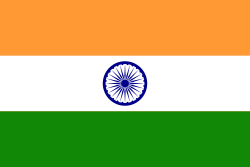Foreign Judgment Applicability in India: Understanding Sections 13 & 14 of CPC
Introduction
With globalization and increasing cross-border relationships, legal disputes involving foreign judgments—especially divorce decrees—are becoming common. Indian law, governed by Sections 13 and 14 of the Code of Civil Procedure, 1908 (CPC), determines the recognition and enforcement of foreign judgments in India. However, not all foreign judgments are automatically valid. They must meet the conditions set by Indian law to be legally enforceable.
What is a Foreign Judgment?
A foreign judgment is a decision given by a court outside India in a civil case, including matters related to divorce, child custody, and financial disputes. However, for a foreign judgment to be recognized in India, it must align with Indian law and the provisions of Sections 13 and 14 of CPC. If a judgment contradicts Indian law, it can be challenged in an Indian court.
Section 13 of CPC: When is a Foreign Judgment Not Conclusive?
As per Indian law, Section 13 of CPC states that a foreign judgment shall be considered conclusive unless:
- It is not pronounced by a competent court – The foreign court must have proper jurisdiction over the case. If the court lacked jurisdiction under Indian law, the judgment is not valid.
- It is not given on the merits of the case – If the judgment was based on technicalities or procedural issues rather than a fair trial, Indian law does not recognize it.
- It is obtained by fraud – A foreign judgment obtained through misrepresentation, false evidence, or concealment of facts can be challenged under Indian law.
- It disregards Indian laws or public policy – If the judgment is inconsistent with Indian law or violates public policy, it will not be enforceable.
- It violates principles of natural justice – If the defendant was not given due notice, a fair hearing, or legal representation, the judgment cannot be enforced under Indian law.
- It is based on a breach of Indian law – A judgment that contradicts Indian legal principles is not enforceable.
Section 14 of CPC: Presumption of Validity
Section 14 of CPC states that an Indian court will presume a foreign judgment to be valid unless proven otherwise. However, this presumption can be challenged if the judgment violates Indian law. A party can present evidence in court to prove that the foreign judgment is not legally binding under Indian law.
Recognition of Foreign Divorce Decrees in India
Foreign divorce decrees are not automatically recognized in India. Under Indian law, a foreign divorce decree is valid only if:
- The foreign court had proper jurisdiction over both spouses as per Indian law.
- The divorce was granted on legally acceptable grounds recognized by Indian law.
- Both parties were given a fair chance to present their case.
- There was no fraud or misrepresentation in obtaining the decree.
If a foreign divorce decree does not comply with Indian law, it can be challenged in an Indian court and declared invalid.
Procedure to Enforce a Foreign Judgment in India
To enforce a foreign judgment in India, follow these steps under Indian law:
-
- Determine if the judgment is from a reciprocating or non-reciprocating country.
- Reciprocating Territory: If the judgment is from a country with which India has a reciprocity agreement (e.g., UK, UAE, Singapore), it is directly enforceable under Section 44A of CPC.
- Non-Reciprocating Territory: If the judgment comes from a non-reciprocating country, a fresh lawsuit must be filed in India, and the foreign judgment will serve as evidence.
-
- Ensure compliance with Section 13 of CPC and Indian law.
-
- File an execution petition in an Indian court.
-
- If the court finds the judgment valid under Indian law, it will be enforced like an Indian decree.
Since enforcing foreign judgments involves complex legal procedures, it is advisable to consult an expert in Indian law to ensure compliance.
Conclusion
Foreign judgments, including divorce decrees, can be enforced in India, but they must comply with Indian law as per Sections 13 and 14 of CPC. If a judgment is obtained fraudulently, violates Indian legal principles, or denies natural justice, it can be challenged in an Indian court. To ensure a smooth legal process, seeking guidance from a legal expert in Indian law is crucial.
Need help enforcing a foreign judgment in India? Consult an expert in Indian law today to navigate the legal complexities effectively.
This blog post provides general information on legal topics and is not a substitute for professional legal counsel. The information presented herein should not be relied upon or construed as legal advice on any specific matter. For personalized legal guidance tailored to your specific situation, please consult with a qualified UAE lawyer or law firm in Dubai.
Tags: abu dhabi legal firms, advocate firm, affordable legal firms in uae, asset finance law firms, attorneys that sue banks near me, bank fraud lawyer, bank lawyer, banking and finance law, banking and finance law firms, banking and financial services law, banking law attorney, banking law lawyers, banking litigation law firms, banking litigation lawyer, banks law firm, best banking law firms, best corporate law firms, best corporate lawyers, best law firms in dubai, best lawyer for banking issues, best lawyers in dubai, best legal firms, best legal firms in dubai, biggest corporate law firms, biggest law firms, commercial banking attorney, commercial banking lawyer, commercial law firms, commercial law firms in dubai, Commercial Lawyer, commercial lawyer dubai, commercial lawyer in dubai, commercial lawyers in uae, corporate and banking law, corporate and commercial law firm, corporate banking law, corporate business lawyers, corporate commercial law, corporate law attorney, corporate law firm in uae, corporate law firms, corporate law firms in dubai, corporate law services, Corporate Lawyer, corporate lawyers in dubai, corporate litigation law firm, financial lawyers, financial regulation lawyer, financial services law, financial services law firm, international law firms in dubai, largest law firms, law firm attorney, law firm services, law firms in abu dhabi, law firms in difc, law firms in doha, law firms in dubai, law firms in uae, law firms near me, law offices in dubai, lawyer for bank issues, lawyer services dubai, lawyers in uae, lawyers who handle bank issues, leading law firms, legal adviser, legal firm, legal firms in abu dhabi, legal firms in dubai, legal firms in uae, legal firms near me, legal law firm, legal services firm, local law firms in dubai, top banking law firms, top corporate law firms, top law firms, top law firms in dubai, top legal firms, top legal firms in dubai




